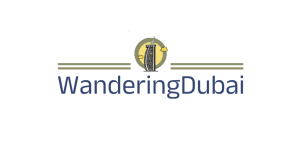Whereas solely relying on its oil revenues, today Dubai is a dynamic global city and its economy has diversified to having bases far broader than those dependent on oil. Certainly, oil was a defining feature of Dabai’s emergence in the early days, but an astute leadership deliberately aligned the emirate’s development to sectors like tourism, real estate, financial services, trade, and commerce.
The rapid growth of Dubai as a globally reputed business and tourism destination is, of course, a result of quick and effective steps by the authorities for diversifying the economy. The city which sits on the crossroad in between East and West culture becomes an important trading point on the world map and assures the flow of business on a global level.
Tourism is one of the most signifiant pillars that help Dubai achieve success in its economy. Through its landmarks, the city holds a special place in the hearts of millions of the people as a destination for their luxury travel and shopping experience. To complement these, events organised like the Dubai Shopping Festival and Expo 2020 not only aggrandise the tourism sector, but also pump life into the local markets.
The real estate developments have also played a key role in of Dubai’s economic diversification. The city’s skyline is decorated by architectural masterpieces like the Burj Khalifa, the tallest tower in the world, as well as the Palm Jumeirah, a man-made isle reminiscent of the palm tree. Moreover, these projects reshape landscapes of Dubai and provide some money that continue to make the economy of UAE profitable.
Dubai’s banking system has also witnessed outstanding development as the establishment of the Dubai International Financial Centre (DIFC) as a venue for financial community was completed. The city tries to create financing-friendly environment and opens up possibility for corporate making, resulting in taxes paid by multinational corporations and, therefore, diversifying the revenues it generates.
Moreover, the Dubai Administration led the way following arts and science-based industries, known as knowledge economy which comprise for example healthcare, technology and renewable energy. The city initiatives like the Dubai Clean Energy Strategy 2050 demonstrates a seriousness of its intentions to make progress in the field of sustainable development.
In other words, the oil still occupies a dominant position in the image of Dubai’s economic environment but due to the city’s visionary entrepreneurship the provision of multiple sources is tapped into.


